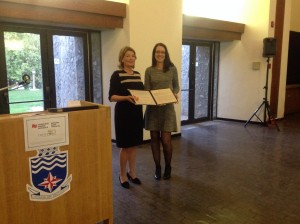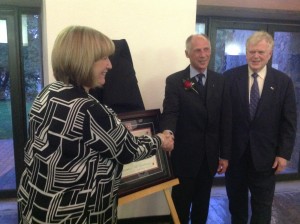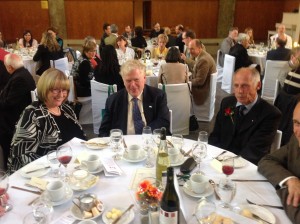7th Triennial International Conference of the Central European Association of Canadian Studies
9 – 10 October, 2015, Zagreb (Croatia)
Organizing Committee of the Croatian-Canadian Academic Society: Vanja Polić, Evaine Le Calve–Ivičević and Marija Paprašarovski from the University of Zagreb
As a geographical notion, “the North” can be used to indicate any or all locations in the northern hemisphere, from the equator to the North Pole. In relation to the United States, all of Canada can be seen as “the North”. But within Canada there is a whole range of different “Norths”, both historically and at present: the “Pays d’en Haut” of the voyageurs, the old Northwest, today’s camping and cottage country “up north”, the northern regions of many of the provinces (differing across the country), the northern territories (Yukon, the Northwest Territories, Nunavut), the Far North. Each of these reflects a different kind of “nordicity”, to use Canadian geographer LouisEdmond Hamelin’s now widely adopted term.
Beyond geography, “the North” is also a concept, one that encompasses a broad range of meanings and symbolic values. It is an imagined space as well as a space for the imaginary, a space of myth as well as a space shaped by myth, by turns cruel and ennobling, enigmatic and inspiring, powerful and fragile. The country’s “northerness” is often viewed as one of its
distinguishing features, a vital element in the Canadian identity – even when “the North” in this case may mean only the non-urban part of Canada north of the thin populated band hugging the border with the United States. It is also a source of pride – “the true North, strong and free” – and, increasingly, in an era of climate change, a challenge. Canada’s imagined and real Norths have been literary and cultural obsessions for centuries.
The aim of this conference is to explore both the literal and the imaginative aspects of the relationship between Canada and “the North” – geographical, economic, literary, linguistic, cultural, social, political, diplomatic, environmental. We seek submissions from all disciplines that deal with Canada and Canadian Studies.
The topics may include but are NOT limited to:
– the North and its representations: real and imaginary territory
– the North in Canadian literature: nordicity and its varieties
– First Nations artwork and literature
– the symbolic North in Canadian culture: hockey, curling, winter carnivals, canoes
– living in the North: Aboriginal communities, the life and survival of traditional cultures, demography and development of local communities, social problems
– North and South: Canada as America’s “North”, southern Canada and its “North”
– decision-making in the North: the roles of federal, provincial and territorial governments and of local administration
– the North and economic questions: exploitation of resources, gas and oil exploration, tourism
– the North and the international community: defense of Canadian sovereignty, the Arctic Council
The Croatian-Canadian Academic Society welcomes proposals for twenty-minute presentations in the field of Canadian Studies. Accepted are paper proposals in English and French. Abstracts of between 150 and 250 words + a brief CV (150 words) should be submitted via the Paper Proposal Submission Form, which is to be found on the conference website. This must be sent by 10 June 2015 to the conference e-mail zagreb2015conference@gmail.com. Notification of acceptance of paper by 15 June 2015.
Click here for the Conference Website and fore more information on the Call of Papers and the Paper Proposal Submission form: Zagreb 2015



